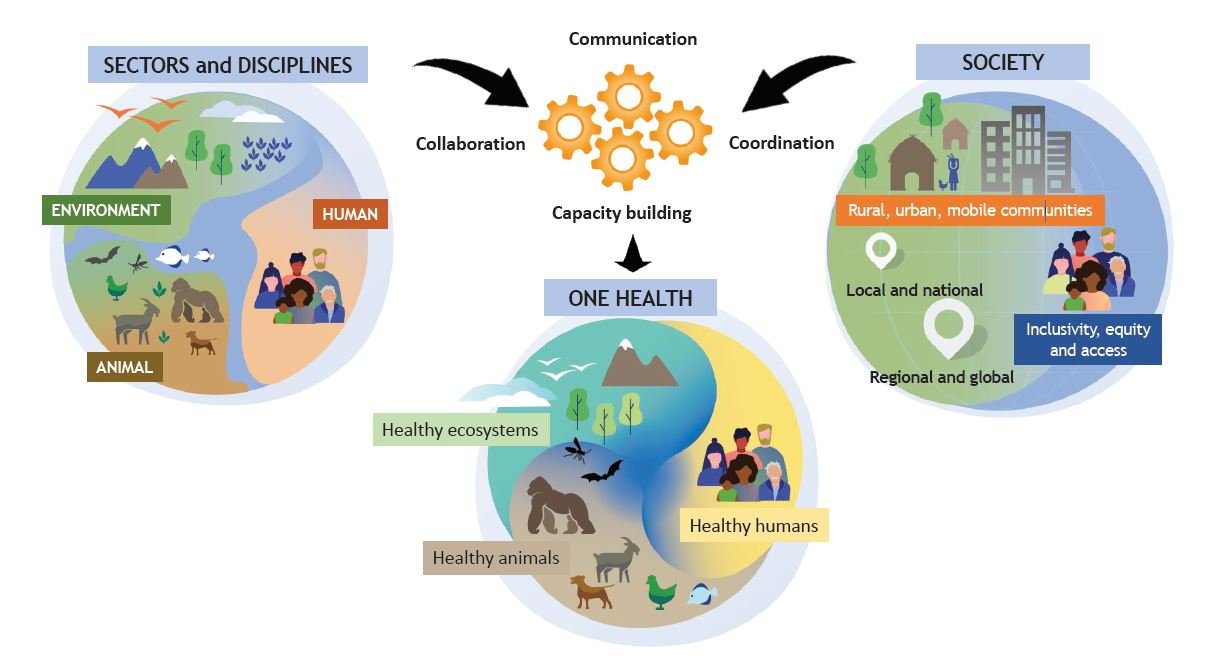The term "One Health" is rather popular these days and is used by various players worldwide. However, the exact definition of the term often remains vague, which makes it difficult to design and implement concrete measures.
Earlier this year, the Food and Agriculture Organization of the United Nations (FAO), the World Organization for Animal Health (OIE), the United Nations Environment Programme (UNEP) and the World Health Organization (WHO) established an advisory body, the One Health High Level Expert Panel (OHHLEP). This has now produced an operational definition of One Health to develop a common language and understanding of One Health.
OHHLEP One Health-Definition
One Health is an integrated, unifying approach that aims to sustainably balance and optimize the health of people, animals and ecosystems.
It recognizes the health of humans, domestic and wild animals, plants, and the wider environment (including ecosystems) are closely linked and inter-dependent.
The approach mobilizes multiple sectors, disciplines and communities at varying levels of society to work together to foster well-being and tackle threats to health and ecosystems, while addressing the collective need for clean water, energy and air, safe and nutritious food, taking action on climate change, and contributing to sustainable development.

Fig.: OHHLEP One Health Definition, source: WHO, FAO, OIE, UNEP
The new comprehensive OHHLEP-One Health definition aims to promote clear understanding and translation across sectors and specialties. It aims to help establish holistic approaches to solutions globally and demonstrate their benefits. The definition is supported by OIE, FAO, WHO and UNEP.
Related links:



